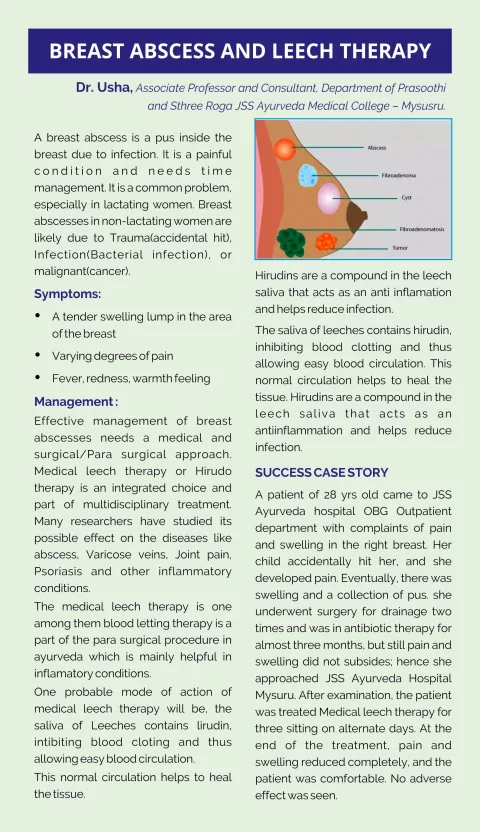Catarrh treatment is essential for those suffering from this uncomfortable condition characterized by excessive mucus build-up in the nasal and throat areas. Affecting individuals often during colds, sinus infections, or allergies, catarrh can lead to nasal congestion and irritation, significantly diminishing quality of life. Fortunately, a variety of effective remedies exist for alleviating catarrh, including home remedies for catarrh, natural treatments, and medicinal options like decongestants. From steam inhalation to herbal concoctions, these techniques aim to clear mucus and ease the discomfort associated with this ailment. In this article, we will delve into the various methods available to tackle catarrh and help restore your comfort.
Understanding the persistent issue of excess mucus in the respiratory tract can be instrumental in finding relief. Known alternatively as a mucous membrane inflammation, catarrh manifests through symptoms like nasal constriction and throat irritation, often exacerbated by allergies or infections. Addressing these issues effectively may require lifestyle adjustments and the use of various methods, including mucus build-up remedies and natural treatments aimed at reducing congestion. As we explore the different strategies for managing this condition, it’s important to consider both home-based solutions and over-the-counter medications, ensuring a comprehensive approach to improving your respiratory health.
Home Remedies for Catarrh: Effective Solutions
Home remedies for catarrh offer a holistic approach to managing excessive mucus build-up without the side effects associated with some medications. Steam inhalation is one of the most popular remedies, as it can quickly soothe inflamed nasal passages and reduce congestion. By creating a warm, moist environment, steam inhalation effectively loosens mucus, making it easier to expel. Essential oils like eucalyptus added to the steam can provide additional relief, enhancing therapeutic benefits and opening up airways.
Another effective home remedy involves a combination of lemon juice and honey. This mixture not only aids in thinning mucus but also supports the immune system. Lemon’s high vitamin C content helps combat colds and allergies, while honey’s soothing properties provide relief from throat irritation. Consuming this blend daily can significantly alleviate symptoms of catarrh and promote overall respiratory health.
Effective Dietary Considerations for Alleviating Catarrh
Dietary choices play a crucial role in managing catarrh and mucus production. Staying hydrated is key; warm fluids such as herbal teas and broths can help thin out mucus and make it easier to clear. Incorporating vitamin C-rich foods—like oranges, bell peppers, and strawberries—can boost your immune system and may help shorten the duration of catarrh symptoms. These foods support the body’s natural defenses, making it more resilient against allergens and infections that can trigger mucus production.
Moreover, your spice rack can also serve as a powerful ally against catarrh. Spicy foods, such as those containing chili peppers, can act as natural decongestants by helping to thin mucus and promote drainage of nasal passages. This not only provides immediate relief but also aids in preventing the recurrence of catarrh symptoms, allowing for a more comfortable day-to-day experience.
Understanding Medicinal Treatments for Catarrh Relief
When natural remedies are insufficient for managing catarrh, over-the-counter medicinal treatments can provide effective relief. Decongestants, like pseudoephedrine, work by reducing inflammation in the nasal passages, allowing for easier airflow and less mucus production. It is essential to use these medications cautiously, as they can come with a range of side effects, including increased blood pressure or insomnia, particularly if used frequently.
Alternatively, antihistamines can be particularly beneficial for individuals whose catarrh symptoms are triggered by allergies. By blocking the action of histamines in the body, these medications can effectively reduce mucus production and alleviate symptoms like nasal congestion and throat irritation. Consulting with a healthcare provider can help identify which medication might be the most effective for your specific situation.
Natural Treatments for Catarrh: Holistic Approaches
Natural treatments for catarrh encompass a variety of methods that aim to alleviate symptoms without relying heavily on pharmaceuticals. Steam inhalation is a prime example, as it uses the power of vapor to soothe irritated mucous membranes and promote mucus clearance. Many people find that integrating essential oils, such as peppermint or lavender, during inhalation amplifies the soothing effect, creating a calming atmosphere that encourages respiratory ease.
Another natural approach is the treatment with ginger, celebrated for its anti-inflammatory properties. Ginger tea can ease throat irritation while helping to thin mucus, making it a powerful ally in combating catarrh. By boiling fresh ginger slices and enjoying it as a warm beverage, individuals can not only relieve symptoms but also enjoy its flavorful benefits. Regular consumption of these natural remedies can significantly improve the quality of life for those suffering from catarrh.
When to Seek Medical Help for Catarrh Symptoms
While many cases of catarrh can be managed with home remedies and lifestyle modifications, it’s important to recognize when to seek medical attention. If symptoms persist for longer than a week or worsen despite treatment efforts, it might signal an underlying condition such as chronic sinusitis or a more serious infection. At this point, a comprehensive evaluation from a healthcare provider can ensure appropriate intervention and treatment.
Additionally, if you experience severe symptoms like high fever, nasal bleeding, or difficulty breathing, it’s crucial to seek immediate medical assistance. Addressing severe or chronic catarrh promptly can prevent complications and provide a clearer path for recovery. Being proactive and informed about your health will enable you to manage not just catarrh, but also enhance your overall respiratory health.
Frequently Asked Questions
What are some effective home remedies for catarrh?
Home remedies for catarrh that can be effective include steam inhalation, lemon juice with honey, turmeric milk, nasal rinses, and ginger tea. Steam inhalation helps clear mucus buildup, while lemon and honey relieve throat irritation. Turmeric and ginger have anti-inflammatory properties that can reduce mucus production. Nasal rinses with saline solutions also help clear congestion.
How can I reduce mucus build-up naturally?
Natural treatments for catarrh to reduce mucus build-up include staying hydrated with warm fluids, consuming spicy foods, and incorporating vitamin C-rich fruits into your diet. These methods can thin mucus and promote a healthier immune response, making it easier to expel excess mucus.
Are there any specific decongestants for catarrh that are recommended?
Over-the-counter decongestants like pseudoephedrine are commonly recommended for alleviating catarrh symptoms. They help reduce nasal passage swelling and mucus production, improving airflow. However, it’s important to consult with a healthcare professional before starting any medication to avoid potential side effects.
What natural treatments are best for alleviating catarrh?
Some of the best natural treatments for alleviating catarrh include steam inhalation, nasal rinses, and drinking ginger tea. These methods help open nasal passages, reduce inflammation, and thin mucus, providing effective relief from symptoms associated with catarrh.
When should I seek medical help for catarrh symptoms?
You should seek medical help for catarrh symptoms if they persist beyond a week, worsen significantly, or are accompanied by high fever, severe headache, or facial pain. These could be signs of underlying conditions like chronic sinusitis or infections that may require more intensive treatment.
| Key Point | Description |
|---|---|
| Definition of Catarrh | Catarrh is defined as excessive mucus buildup due to inflammation of mucous membranes, resulting in symptoms like nasal congestion and throat irritation. |
| Causes of Catarrh | Common triggers include viral infections, allergens, and environmental irritants that cause inflammation leading to excess mucus. |
| Natural Remedies | Effective home remedies include steam inhalation, lemon juice and honey, turmeric, nasal rinses, and ginger tea to relieve symptoms. |
| Dietary Considerations | Staying hydrated, consuming Vitamin C-rich foods, and including spicy foods can reduce mucus production. |
| Medicinal Treatments | Over-the-counter options like decongestants and antihistamines can be used to manage more severe symptoms. |
| When to Seek Medical Help | Consult a doctor if symptoms persist or worsen, as they may indicate underlying conditions that require specific treatment. |
Summary
Catarrh treatment is essential for anyone suffering from excessive mucus buildup that disrupts daily comfort. This condition can be managed effectively through a combination of natural remedies like steam inhalation and ginger tea, as well as dietary adjustments that promote hydration and immune health. For those with more severe or persistent symptoms, medicinal options, including decongestants and antihistamines, offer relief. It’s crucial to recognize the underlying causes of catarrh to choose the most effective treatment strategy. By understanding these aspects and responding appropriately, proper management of catarrh can improve your overall quality of life.
The content provided on this blog (e.g., symptom descriptions, health tips, or general advice) is for informational purposes only and is not a substitute for professional medical advice, diagnosis, or treatment. Always seek the guidance of your physician or other qualified healthcare provider with any questions you may have regarding a medical condition. Never disregard professional medical advice or delay seeking it because of something you have read on this website. If you believe you may have a medical emergency, call your doctor or emergency services immediately. Reliance on any information provided by this blog is solely at your own risk.








